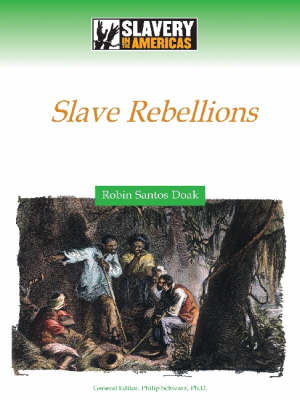Slavery in the Americas
1 total work
Throughout the centuries of slavery, since the very first Africans came to the New World in the early 1500s, there was a will to rebel. Made to suffer hard labor, disease, split families, and a forever-grueling tyranny, Africans faced the reality of what would be passed down to their children. Whether intentionally working slower, stealing, escaping, or actually staging violent slave rebellions, slaves continued to resist the hold owners placed on them throughout slavery's duration. From the new set ""Slavery in the Americas"", ""Slave Rebellions"" explores this intriguing time in American history more thoroughly. Topics include: The Hispaniola Revolt of 1522; The Correction Law of 1669; The Stono Rebellion, also known as Cato's Conspiracy; The first Fugitive Slave Act; The Missouri Compromise outlawing the slave trade; David Walker's ""Appeal: To the Coloured Citizens of the World"", but in particular, and very expressly, to those of the United States of America; The Anthony Bums case; and The New York City race riots.
